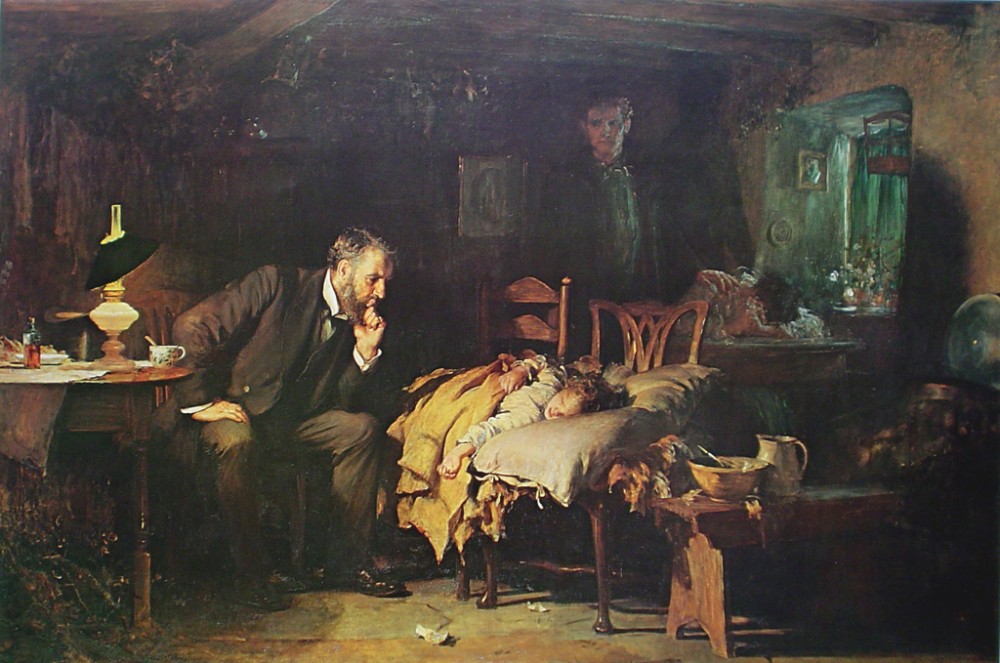The views expressed in this article are those of the author and do not necessarily represent the views of, and should not be attributed to, CureMD Healthcare.
Never have I paid so much attention to US politics like I did last month. I am still hoping against hope that ICD-10 is not coming. Don’t get me wrong, I am not a shirker. I work almost 15 hours a day at my practice, come home to a house full of toddlers, and still find it in me to go to work on time the next day.
Let me tell you a bit about myself. I belong to that rare breed who opted to open an independent practice fresh out of residency. Don’t hold your breath; I do have pending student loans. Taking further loans to open my own practice might not have been the most financially viable choice; but I was just not ready to get into a relationship with a hospital. Let’s just say my brand of care and their values were incompatible.
I don’t regret my choice though; I would not have it any other way. But there are times of self- doubt; more so recently, than I have ever had in my life.
Recent surveys by Physician Foundation have shown that 29% of my peers regret opting for Medicine and if given a chance, they would not choose medicine as their profession. I am not in those 29%. I can’t imagine being anything other than a caregiver.
But what I do mind is the direction that US healthcare is taking, and that healthcare is being piloted by those who have little understanding of practicing medicine and independent practices.
Case in point is a recent exchange between Senator Cassidy and HHS Secretary Sylvia Burwell regarding ICD-10 and its implications for a small provider. From this blog itself:
He said
“Smaller providers are already struggling with EHRs and will soon face those payment disruptions, not because they’re doing it wrong but because the system has changed”.
She said
“…Many large payers and providers are ready and waiting for ICD-10 and that HHS is working to provide technical assistance and training to those organizations that are not at this point prepared.”
Is it just me or was there a total lack of empathy for the small provider in her response? In fact, Ms. Burwell, Secretary HHS displayed brilliant political acumen by simply ignoring Senator Cassidy’s main concern i.e. the small provider.
Before ICD-10 apologists start calling me anti-development, let me present my case. I was one of the first to jump on the EHR technology bandwagon. Having a system to store all my patient data, virtually connecting with labs and pharmacies, sending automatic reminders to patients for appointments, immunizations, drug refills etc. – all had utility for my practice. I am still a happy EHR user. So no I am not anti-advancement when advancements make sense.
But, with ICD-10 and all these quality measures that the government expects us to report, not only are you making an average physician into a data entry machine, you are forcing Health IT professionals to develop technologies that are less and less usable.
Yes, ICD-10 adds more to diagnosis. Yes, the data collected from it might contribute to better population management in some distant future. Yes, Europe and UK have moved to it decades ago. Yes, our front-end provider has enough cash to face humongous revenue disruptions come October 1. Oh wait! But they don’t.
Large Healthcare organizations might have the staff and the resources to handle multiple regulations, but an average provider with his own practice, definitely does not. Overhead costs are increasing; regulatory requirements, that at times don’t make sense, leave us at the end of one penalty or the other. More people are on government-run insurance that pays less, while private insurance fights every claim. We are being encouraged to devise payment policies for patient collections as insurances are now churning out plans with higher deductibles. Add to that, come October we are being advised to find a line of credit to keep our practices afloat as God knows what will happen. No wonder physicians are opting to retire, are unsatisfied with their job, or are simply so frustrated that their patients are feeling the heat.
Excuse my impertinence, but anything that is diminishing community practices in favor of large monopolistic healthcare giants, which our policy makers are invariably doing, cannot be good for US healthcare. Wasn’t the Affordable Care Act supposed to make healthcare cheaper and better for the American people? How can it be cheaper when the only competition to large healthcare groups, the independent practice, is being wiped off the healthcare hemisphere? How can it be better when physicians, in the words of Dr. Jauhar, are spending most of their time trying to game the system, requiring endless paperwork, protracted bureaucratic battles and “treadmill medicine,” seeing as many patients as possible in as little time?
So no, I don’t buy the ICD-10 dream. However, like a hopelessly devoted lover (to the field of medicine), I will go through the mechanism of preparing myself and my staff. Come October 1, I will make the transition because I want independent practices to survive against all odds.
On a closing note, this portrait of a doctor by Sir Luke Fildes appeals to me on so many levels. It shows the beauty of a patient-physician relationship, the real reason why many of us chose to practice medicine. I hope in our quest for patient engagement, interoperability-we don’t lose it. Washington are you listening?

Image courtesy: http://www.forbes.com/sites/physiciansfoundation/2015/05/04/the-personal-political-nature-of-medical-care/
Have something to say about ICD-10 and how it’s impacting you as a physician? Write to us at healthit@curemd.com.
Update :A bill to protect physicians from huge revenue cuts post ICD-10 implementation has been proposed. Read about the ICD-TEN bill here.
